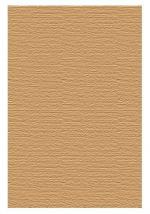|
This section contains 813 words (approx. 3 pages at 300 words per page) |

|
World of Anatomy and Physiology on Charles Robert Richet
French physiologist Charles Robert Richet won the 1913 Nobel Prize for his discovery of a nonprotective, toxic immune system process that he called anaphylaxis, a process related to the shock and allergic reactions that occur when foreign substances are injected into the body. Richet also tried to develop treatments for tuberculosis and to discover a serum to prevent tuberculosis.
Richet was born August 26, 1850, in Paris. His father, Alfred Richet, taught surgery at the University of Paris. His mother was Eugénie Rouard. After secondary school, Richet decided he wanted to practice medicine. He enrolled in the University of Paris medical school, but he soon found that he was more interested in research than in applied medicine. He also weighed the possibilities of a career in the humanities, and although he choose science instead, he maintained an active interest in literary, philosophical, and political subjects throughout his life.
In...
|
This section contains 813 words (approx. 3 pages at 300 words per page) |

|


